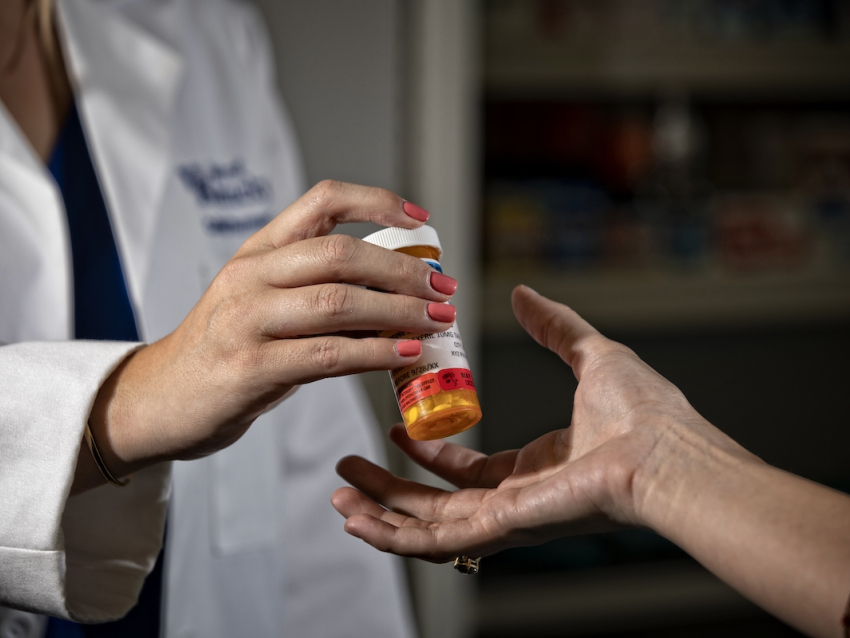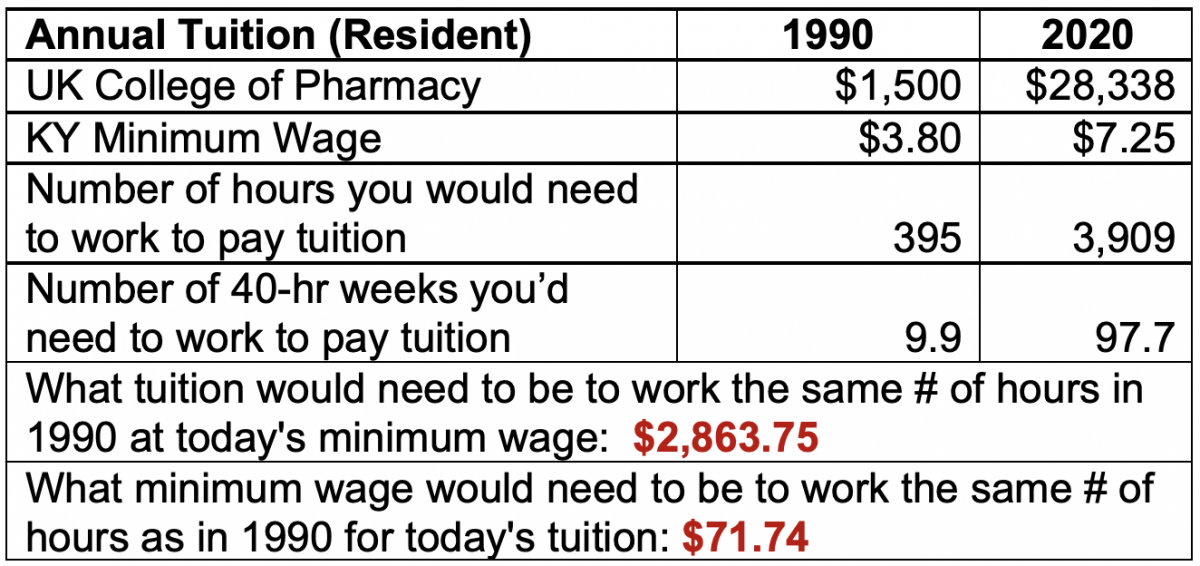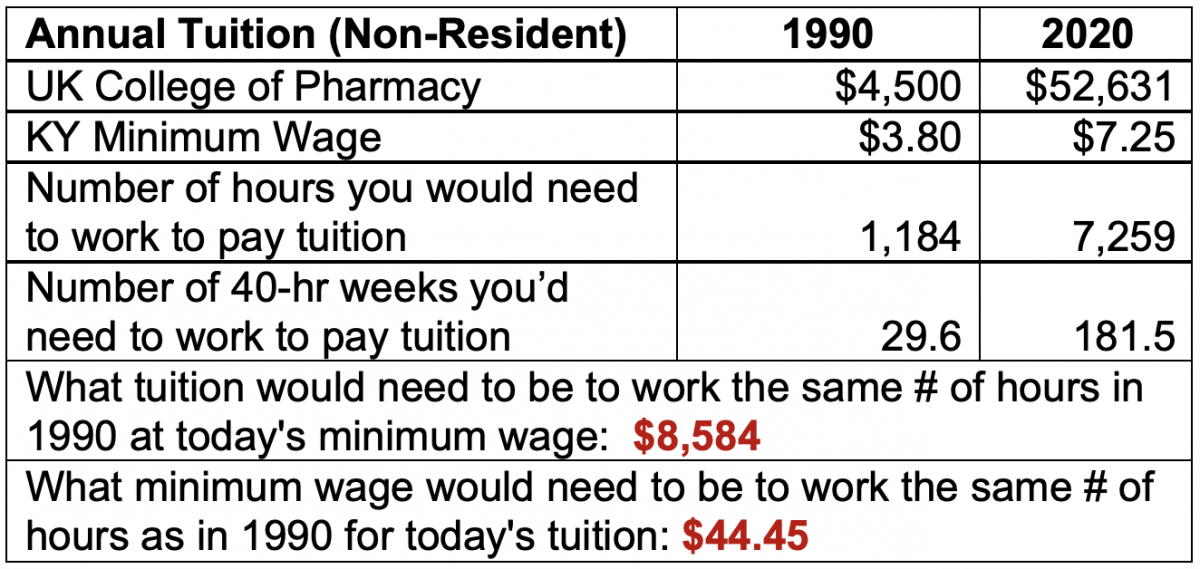
Letter from the Dean: How Are We Preparing Future Pharmacists?
I want to comment upon recent press coverage concerning the pharmacy profession, including the articles below.
- Pharmacists are Trapped in a System that Threatens Patient Safety
- How Chaos at Chain Pharmacies is Putting Patients at Risk
- Why Pharmacists are about to be Hit Hard by Disruption
This presentation of the profession in the press has prompted some to ask how we at the UK College of Pharmacy are preparing our students to enter potentially chaotic and understaffed work environments. To that I say, we have focused, and will continue to focus, on training our student pharmacists to be care providers. We prepare our graduates to be agile and flexible in a tumultuous job market by training them to manage stress, advocate for patients, and practice with the utmost professionalism.
We intend that our students and graduates are able to advocate for the change needed by their patients and will do so. We will continue to support these efforts.
The UK College of Pharmacy has recently taken several concrete actions in support of our students and alumni, to better support them during these challenging times.
- Increased resources available for career development, ensuring new graduates have the support they need before and after graduation.
- Initiated discussions with the University of Kentucky Alumni Association to purchase a 2-year Alumni Association membership for each graduate to ensure our alumni have career support after graduation.
- Launched the ResCATS program to support the more than half of the graduating class who pursue residency training after graduation. The program involves mentoring for residency-bound 4th-year pharmacy students.
- Surveyed our graduates to capture employment and job satisfaction data to inform our efforts to prepare trainees for their careers and support alumni. (Our alumni will receive an email directly from me with a link to this 1-minute survey).
- Advocated for expanded scope of practice for pharmacists and compensation models that recognize the role of pharmacists in providing care more fairly.
FAQs
What are the difficulties facing pharmacists in the workforce?
Pharmacists are the healthcare system’s medication experts. Unfortunately, payment for their services has historically been tied to a product—the medication itself. Pharmacists are feeling the impact of reduced reimbursements associated with drug dispensing. We are actively working with legislators on more modernized payment models which include fairer compensation for pharmacists in alignment with their most valuable asset: their expertise as care providers.
Why does it seem there are more pharmacists now than ever before?
In the 1990s there was a shortage of pharmacists and the educational realm responded to this by increasing training capacity. The number of pharmacy schools has gone from roughly 70 in the 1990s to more than 140 in 2020, with another new pharmacy school opening this year. During the same time frame, many existing schools increased their class sizes as a means to address the shortage of the early ‘90s. Similar to the real estate bubble of 2008, a pharmacy bubble was created and is currently undergoing a correction.
Did the College do anything to prevent this influx of pharmacists?
In 2015, we predicted this pharmacy bubble would soon burst in ‘A Coming Disruption in Pharmacy?’ The College continued to focus on keeping class sizes consistent and tuition as stable as possible. In addition, we reworked our curriculum to ensure our graduates would continue to be outstanding practitioners, who practice at the top of their license in any setting.
What’s your response to the lack of jobs for pharmacists?
The decline in market demands for pharmacists is not consistent across all practice types – some areas are experiencing dramatic growth (specialty pharmacy), while other areas are experiencing contraction (chain pharmacies). That is not to say the concerns are misplaced or the strain on a good portion of our alumni is not real; rather the concerns in the news may be specific to one segment of the pharmacy profession. We have focused and continue to focus on ensuring that our graduates can excel in any setting – thereby giving them the base skills to manage this fluid situation for their entire career.
Pharmacy graduates have substantial debt, putting more pressure on individuals to find employment quickly even if conditions are unfavorable. Can the College lower tuition?
Unfortunately, no. Tuition is determined by the University and its Board of Trustees in consultation with state policymakers. Tuition costs, debt levels, and starting salaries have all changed over the past 30 years, sometimes not in favor of the value proposition – a situation shared by all colleges of pharmacy. We work to mitigate the cost of tuition as much as we can. We also encourage our students and alumni to advocate for the change they want to see; we at the administrative level will do the same.
Why doesn’t the College decrease its class sizes?
A very small percentage of pharmacists nationwide graduate from our program. Even if we were to cut our class size by 50 percent, the overall effect would be minimal. Other pharmacy programs in the state, as well as within adjoining states, continue to impact the Kentucky job market. Unless the profession as a whole commits to decreasing student pools, this idea does not remain a viable option.
What would you say to students interested in pharmacy but worried about the job prospects?
As one of the country’s top-ranked colleges of pharmacy, we have an established track record of preparing graduates for life-long careers in pharmacy. We continue to place our graduates in the best jobs in the profession and they continue to excel. More than 95% of our graduates are employed within 3 months of leaving the College. Our school continues to be recognized as a leader within the profession and our graduates are still among the most sought after.


